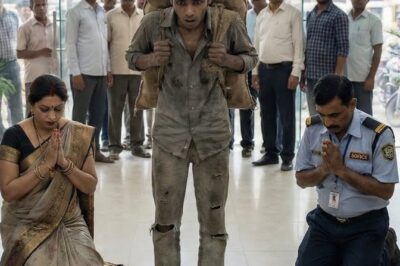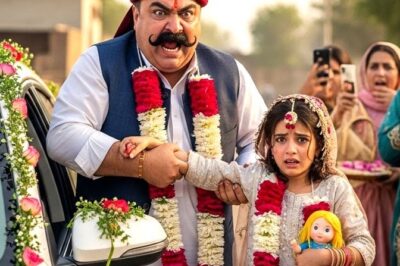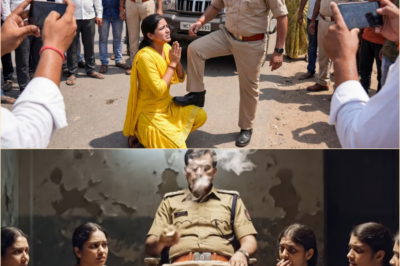Khushbu patani Angry Reply To Premanand Maharaj Fans 😡 BB19 Eisha Singh blood Shocking Video viral
In the age of instant communication and viral content, the lines between reality, performance, and perception are increasingly blurred. Two public figures recently found themselves at the center of online storms, dealing with misinformation, misinterpretation, and the full force of internet outrage. One is Khushboo Patani, sister of Bollywood actress Disha Patani, and the other is television actress Eisha Singh, known for her appearance in Bigg Boss 18. While their controversies differ vastly in nature, they are both reflections of the complexities and perils of digital celebrity culture today.
Khushboo Patani, a fitness enthusiast and emerging public figure, has been making headlines over the last few days, but not for the reasons she might have expected. A few weeks ago, she responded strongly to a controversial statement made by spiritual influencer Aniruddh Acharya, who allegedly claimed that “25-year-old girls roam around with four men.” The statement, widely condemned for its misogyny and generalization, prompted Khushboo to speak out against it in a video that has since gone viral.
In her response, she condemned such comments made by someone considered a spiritual figure. Her choice of words in the video, particularly the use of the term “namard” (a derogatory word implying lack of masculinity), sparked a heated debate online. While some praised her for taking a stand against regressive views, others accused her of going too far. What followed was a torrent of trolling, hate comments, and a widespread campaign attempting to misrepresent her intentions.
Things took a darker turn when her video criticizing Aniruddh Acharya was misleadingly edited and combined with a separate video involving spiritual leader Premanand Maharaj. The manipulated clip suggested that Khushboo had made similar derogatory remarks about Maharaj, a claim she firmly denied. In a follow-up video, she addressed the matter directly, stating that she had no knowledge of Premanand Maharaj’s video at the time her own was recorded, and that any such connection was fabricated.
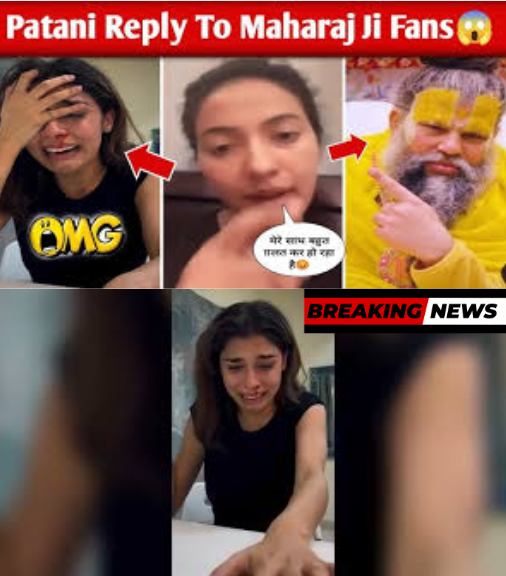
Khushboo expressed her frustration with the false narrative that had been created around her. She explained how her original comments were taken out of context and wrongly linked to another individual she had not mentioned. The edited video, according to her, was an example of fake news being used to distract from the actual issue at hand — the unacceptable statements made by Aniruddh Acharya. She described the tactic as a form of “cyber warfare,” where the real story is buried under waves of misinformation and character assassination.
More troubling, however, was the aftermath of the fake narrative. Premanand Maharaj reportedly received death threats, and Khushboo’s name was being dragged into the controversy once again. She clarified that she had no involvement in the threats and warned those spreading misinformation that she would pursue serious legal action against anyone linking her name to such incidents. In her words, “No one has the right to falsely associate my name with things I have not done. If I have said something, I will own it. But do not mix my words with something I never even knew about.”
She also reminded the public and the media to verify information before spreading it, especially when reputations and safety are on the line. The backlash, she emphasized, was not only unjustified but also dangerous — a cautionary tale of how quickly misinformation can escalate in today’s digital age.
While Khushboo was dealing with manipulated videos and misattributed statements, Eisha Singh found herself facing a completely different kind of controversy — one that revolved around emotional manipulation and public trust. A former contestant on Bigg Boss 18, Eisha is well known in television circles and has a strong fan following. Recently, she posted a dramatic video on her Instagram in which she appeared visibly distressed, with blood seemingly coming from her nose and ears, and tears streaming down her face.
The video immediately alarmed fans and followers, many of whom flooded her comment section with concerned messages. Some speculated that she had been attacked or was in serious danger. The raw nature of the video — uncaptioned and unexplained — created a wave of panic, as people feared for her safety and well-being.
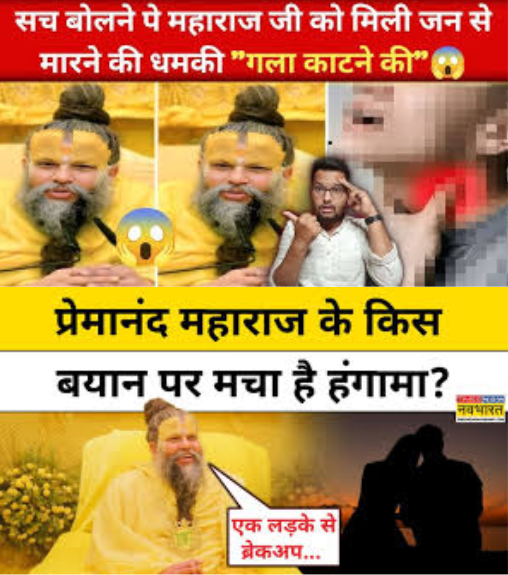
However, within hours, Eisha shared a clarification through an Instagram Story. She stated that the video was not real but rather a behind-the-scenes clip from an upcoming music video. Her intention, she claimed, was not to scare anyone, and she apologized if it had caused unnecessary worry. But the damage was done.
Many fans and critics alike began accusing her of using distress and trauma as a promotional tool. Social media was flooded with posts questioning the ethics of such a move. People were particularly upset that she had shared such a dramatic and realistic video without any context or disclaimer. While dramatic promotion is nothing new in the entertainment industry, many felt that Eisha’s approach was misleading and emotionally manipulative.
The backlash was swift. Some called her out for exploiting public emotion to market a song, while others unfollowed her in protest. The incident reignited the debate on where the line lies between creative expression and irresponsible content. Was it just a poorly executed marketing strategy, or a deliberate attempt to go viral at the cost of authenticity?
This is not the first time celebrities have used ambiguity and mystery to promote content. But the unique emotional tone of Eisha’s video — depicting what looked like real pain and harm — touched a nerve among audiences already fatigued by internet hoaxes and exaggerated influencer antics. Many felt betrayed, arguing that trust between a public figure and their audience is sacred, and once broken, hard to repair.
Eisha, to her credit, did not double down on the act. She issued the clarification promptly and acknowledged that her video had been misinterpreted. Still, the episode left a lasting impression. It became yet another example of how even well-meaning promotions can backfire when not presented with clarity and consideration for audience sensitivity.
Both Khushboo Patani and Eisha Singh’s experiences offer sobering lessons on the power and peril of digital narratives. In Khushboo’s case, a genuine attempt to hold someone accountable turned into a firestorm of false associations and cyberbullying. In Eisha’s case, an attempt at viral marketing backfired, causing confusion and eroding public trust. Despite the very different contexts, both incidents reflect how fragile and volatile online public opinion can be.
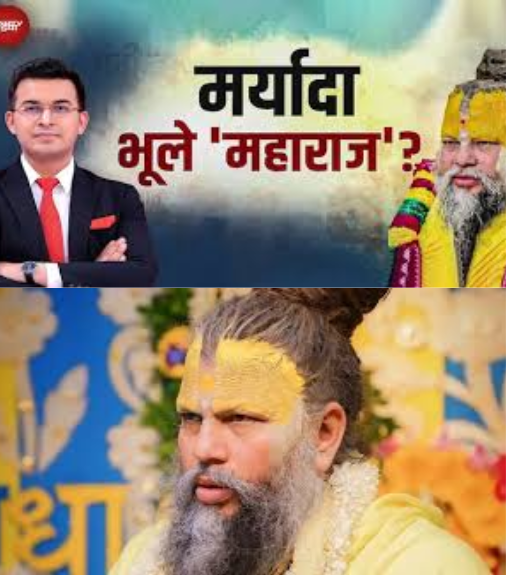
These events also underline the responsibility that comes with having a platform. Public figures, especially those with large followings, must be careful about what they say, how they say it, and how their content might be interpreted or misused. The internet does not forgive easily, and a single video or post can define public perception for weeks, if not longer.
At the same time, audiences too must learn to question what they consume. Context is everything. A video clip does not always tell the full story. And in a world where content is constantly being edited, remixed, and reuploaded, verifying facts before forming judgments has become more important than ever.
Khushboo and Eisha’s stories also raise important questions about how quickly people are willing to judge, blame, or attack — often without understanding the full situation. Misinformation thrives on outrage, and in the fast-paced digital environment, even a few seconds of footage can destroy reputations, spark hate campaigns, or mislead millions.
As for what lies ahead, Khushboo Patani has made it clear that she will not tolerate false associations any longer. Her vow to take legal action against those spreading fake news shows a growing determination among public figures to fight back against digital defamation. Meanwhile, Eisha Singh may need to reconsider her promotional strategies in the future, keeping in mind the thin line between engagement and manipulation.
In a world where every word can be recorded and every video can go viral, navigating fame is no longer just about talent — it’s about media literacy, crisis management, and maintaining trust with the public. Both Khushboo and Eisha, through their recent controversies, serve as reminders of how high the stakes really are in the influencer age.
Play video :
News
आखिर क्यों झुक गए सभी बैंक कर्मचारी एक कूड़ा बिनने वाले लड़के के सामने? 😱
आखिर क्यों झुक गए सभी बैंक कर्मचारी एक कूड़ा बिनने वाले लड़के के सामने? 😱 . . . यह कहानी…
घमंड में डूबी मालकिन ने गरीब ड्राइवर को नीचा दिखाया पर सच्चाई सामने आते ही सब दंग रह गए
घमंड में डूबी मालकिन ने गरीब ड्राइवर को नीचा दिखाया पर सच्चाई सामने आते ही सब दंग रह गए ….
Soteli maa ki Badshahi ne mazloom beti par Ramzan mein kya zulam kar daala, Islamic Story
Soteli maa ki Badshahi ne mazloom beti par Ramzan mein kya zulam kar daala, Islamic Story . . . मोहल्ले…
10 साल बाद मां को रेड सिग्नल पर मिला अपना खोया हुआ बेटा | Rula Dene Wali Kahani
10 साल बाद मां को रेड सिग्नल पर मिला अपना खोया हुआ बेटा | Rula Dene Wali Kahani . ….
गरीब लड़के ने करोड़पति की बेटी की जान बचाई, फिर लड़की ने जो किया… देखकर सब रो पड़े |
गरीब लड़के ने करोड़पति की बेटी की जान बचाई, फिर लड़की ने जो किया… देखकर सब रो पड़े | ….
“दरोगा ने सोचा साधारण महिला… IPS नंदिता ने दिखाया असली दम!”
“दरोगा ने सोचा साधारण महिला… IPS नंदिता ने दिखाया असली दम!” . . . “दरोगा ने सोचा साधारण महिला… IPS…
End of content
No more pages to load

